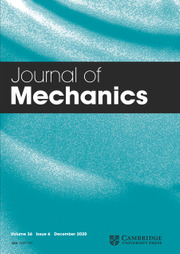Article contents
Effect of Lubricant Compressibility on Hydrodynamic Behavior of Finite Length Journal Bearings Running under Heavy Load Conditions
Published online by Cambridge University Press: 15 July 2015
Abstract
The journal bearings which are designed for heavy-duty operations could experience different lubricant density due to high bearing loads. In the present work, hydrodynamic behaviour of finite length journal bearings under laminar and isoviscous flow with variable density are investigated. For this purpose, three-dimensional continuity and momentum equations along with a proper density-pressure relation are solved numerically, using CFD technique. Also, an appropriate cavitation model based on mass conservation is involved in the computation. Because of complex geometry of journal bearing, a conformal mapping is employed to generate an orthogonal grid and the governing equations are transformed in the computational domain. Since the degree of oil compressibility can be depended to the type of lubricant, typical mineral and synthetic oils treatments are modelled, separately. Results indicate that the oil compressibility effect leads to increasing load carrying capacity such that this increase is slightly more for the synthetic oil.
Information
- Type
- Research Article
- Information
- Copyright
- Copyright © The Society of Theoretical and Applied Mechanics, R.O.C. 2016
References
REFERENCES
- 4
- Cited by

